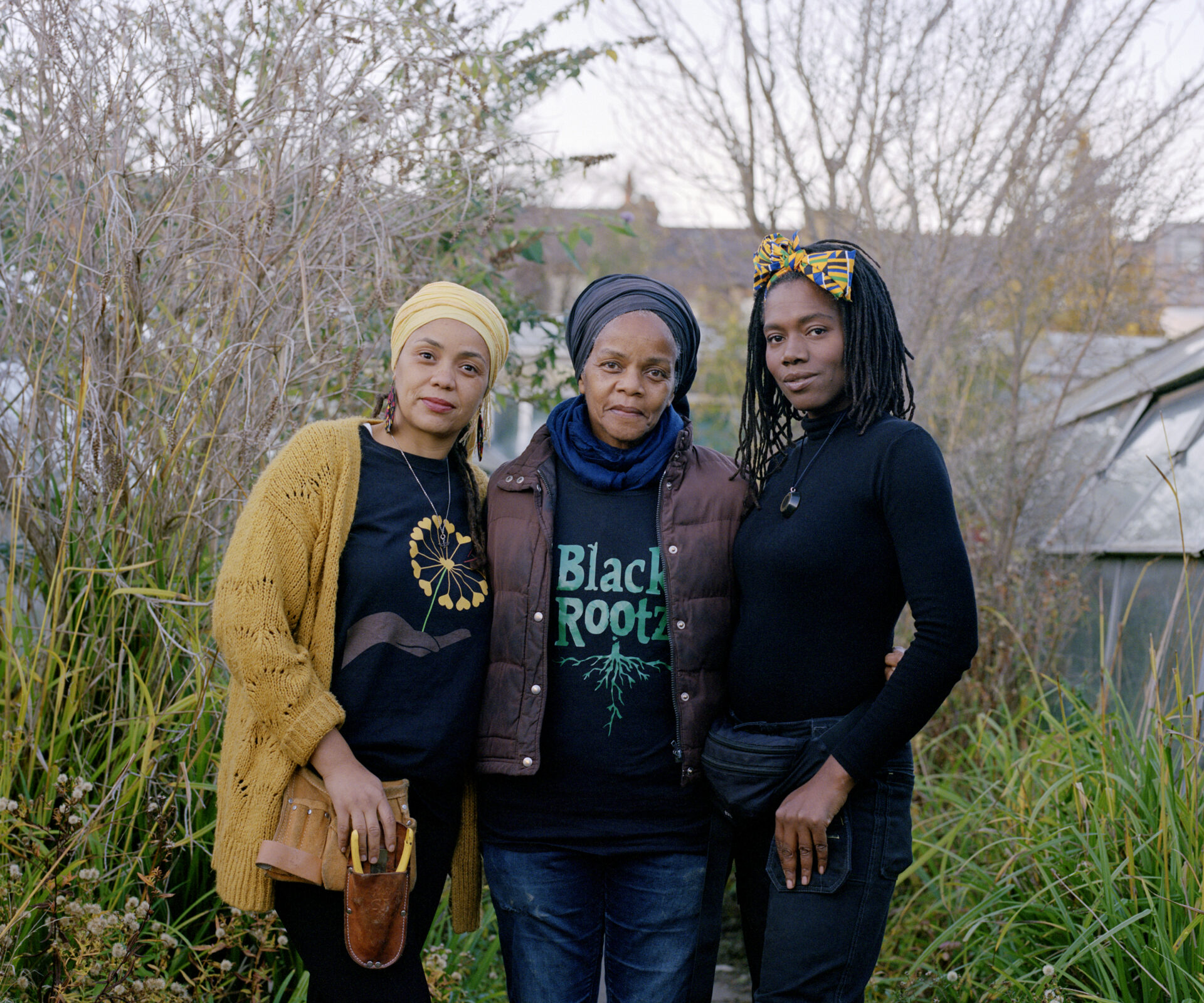Women of colour produce the majority of food on the planet, yet their labour is consistently unrecognised and undervalued.
“We think about farming and we don’t think about that work that is going into 80% of global food supply”
– Jyoti Fernandez, The Landworkers’ Alliance
Across the UK, women, especially Black and Asian women, are the most impacted by worsening food insecurities.
A productive, just, and secure food system should centre the Indigenous knowledge systems that have been providing communities with abundant food for centuries. Equally, it should platform the experiences, knowledge, and practices of those most impacted by food injustices.
In the heart of London, a growing community of women has been sowing seeds of change.
In conversation with contributors to our London We Feed The UK Story, we discussed the power of food growing in forming connections with the land and with each other while championing food justice. The panel of trailblazing women shared empowering messages of heritage, love, and resilience at this crucial time for transformation.
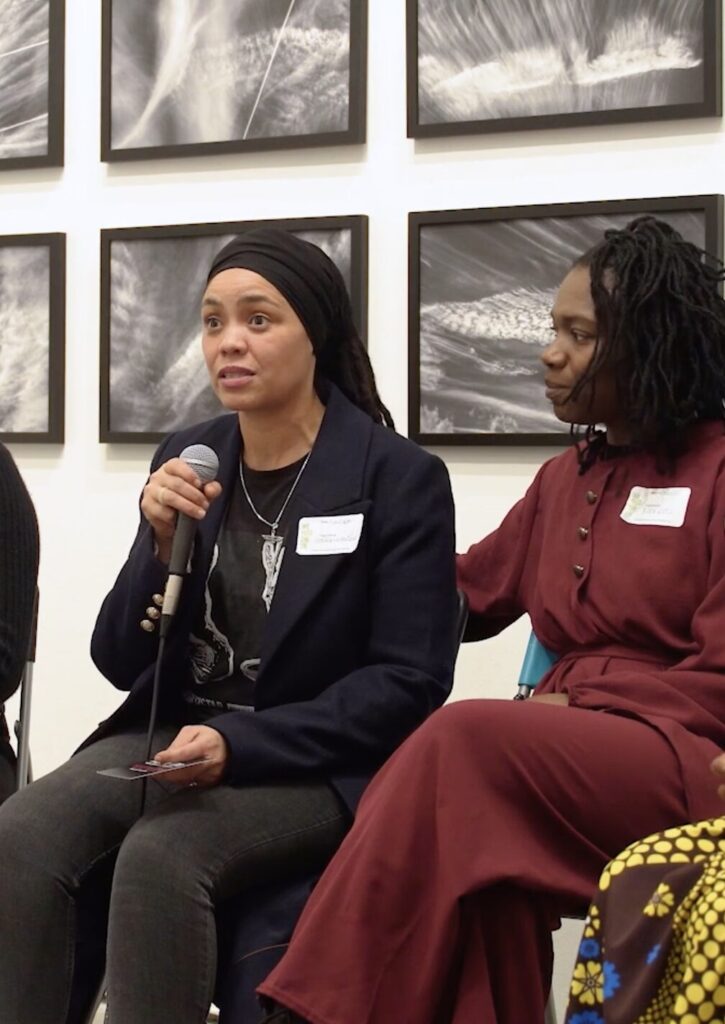
“We’re here to share the message of unity. We all should be growing together, we all should be tapping into our ancestry, we all should be looking back in order to move forward. We all should be planting seeds of intention, seeds of hope, for the next generation to come.”
Sandra Salazar D’eca, Go Grow With Love
Sandra began her journey into community farming when she became a new mother. Her initial focus was on ensuring she and her son were properly nourished.
At this time, in her search for cultural foods from home, she began to notice a disconnect between people and the land, people and the food they were eating, and between the people themselves.
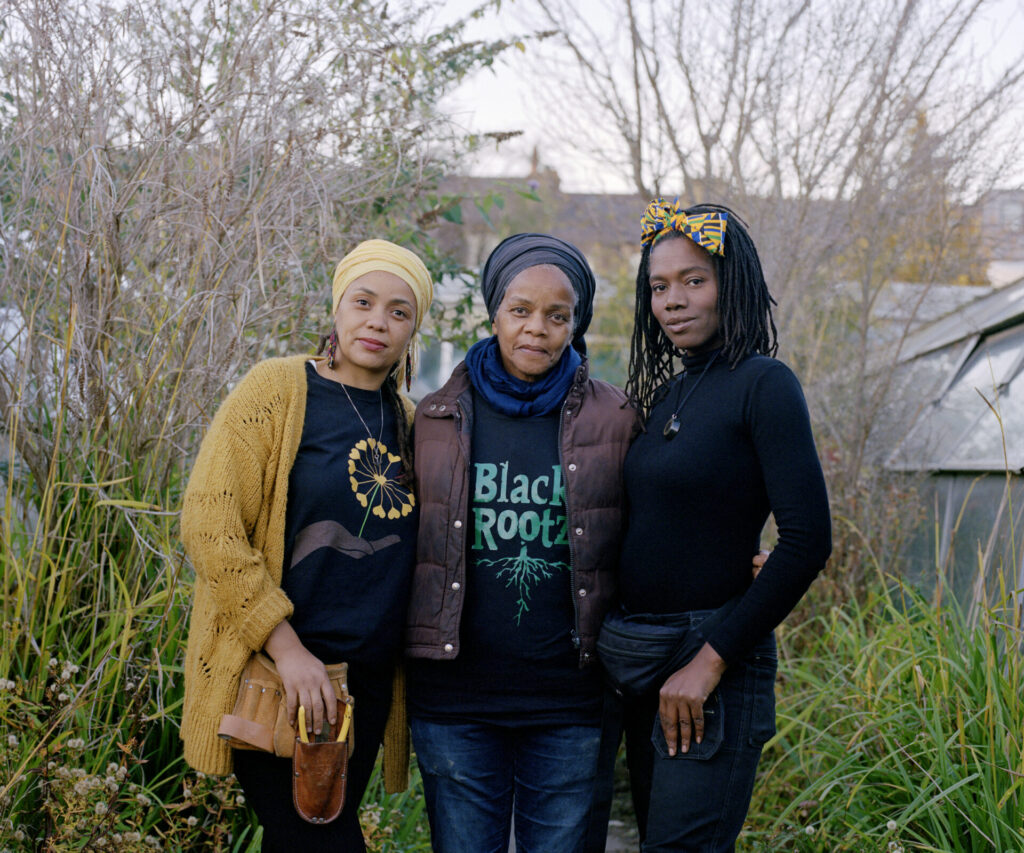

Sandra founded Go Grow With Love to support women of African and Caribbean heritage in nurturing a reciprocal relationship with local land.
Now, women in Tottenham and Enfield come together to grow nutritional, culturally relevant food that feeds families and unites communities.
“Being able to connect food with communities allows them to understand heritage, allows them to understand power, it allows us to share. ”
Pamela Shor, Black Rootz
.
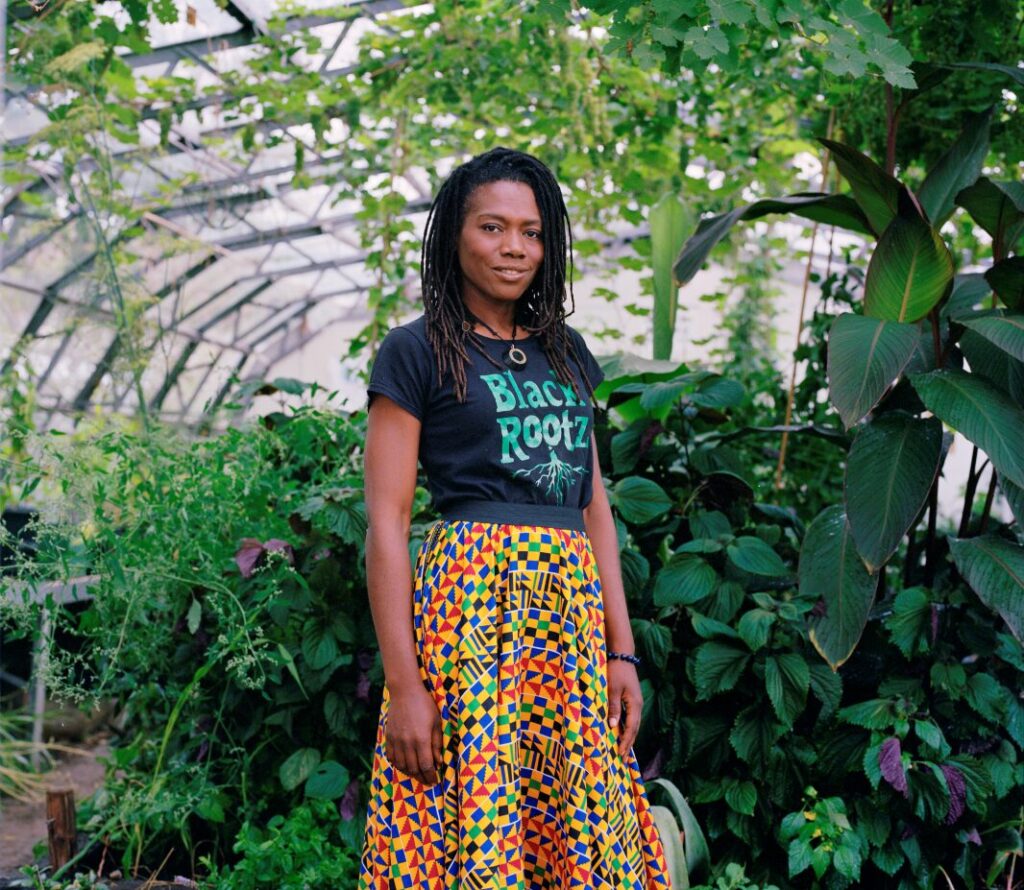
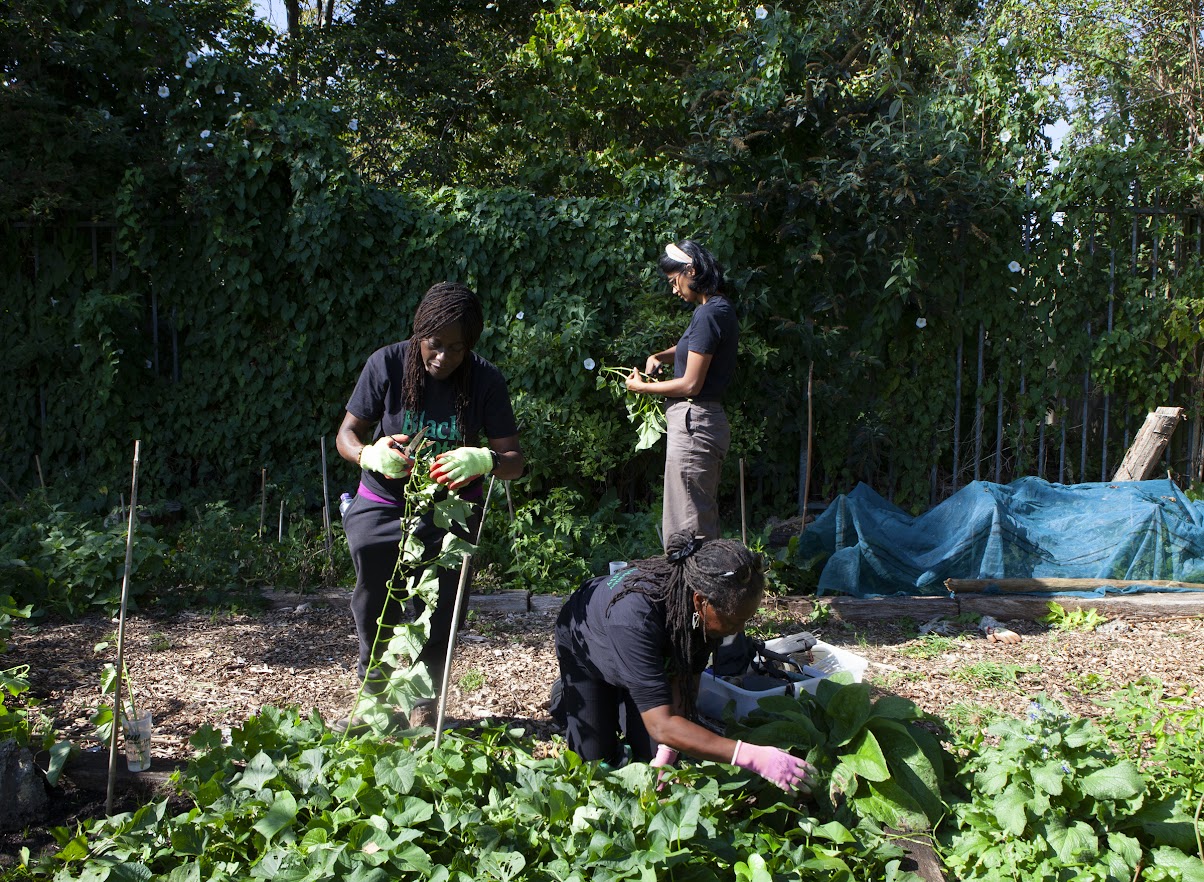
Pamela is one of the co-founders of Black Rootz: the UK’s first multigenerational, Black-led growing enterprise. Her work is reconnecting Londoners with seed, ancestral knowledge and earth.
She emphasises the need for accessible spaces that allow Black knowledge to form part of the dominant narratives.
“We talk about ‘agroecology’ but these are lessons that have been passed down from Indigenous cultures time and time again. Putting a label on it in that way sometimes restricts communities, such as my own, from being able to access the knowledge that is in their DNA. “
“In the middle of concrete cities, you’d never see or imagine these paradises in between buildings and this beautiful community of women.”
Arpita Shah, photographer
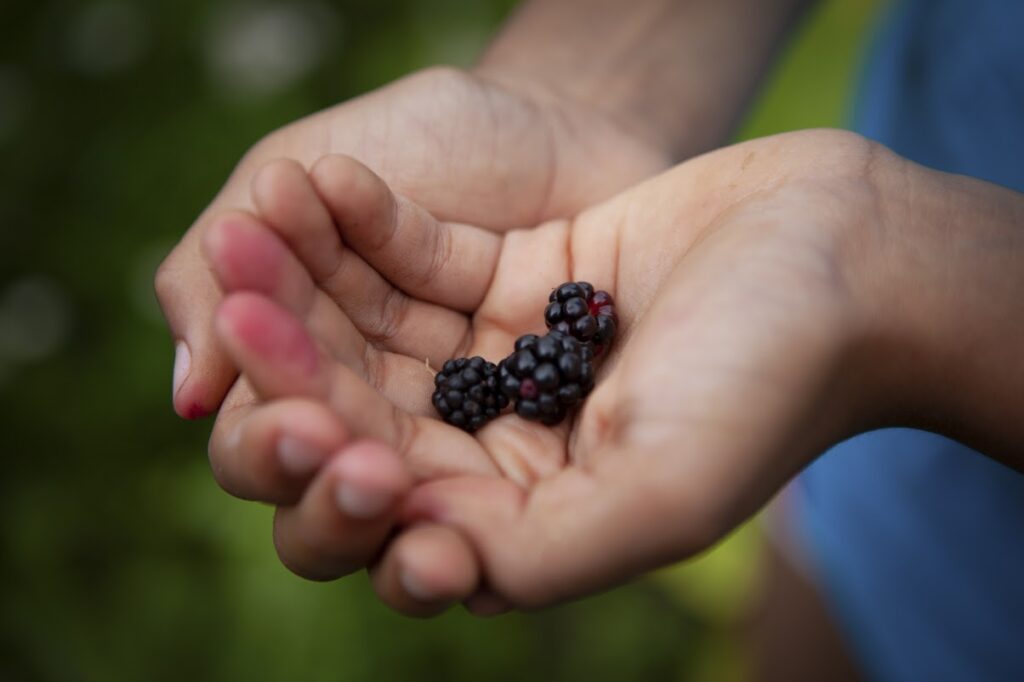
.
Arpita Shah has been working closely with Black Rootz and Go Grow With Love. Her powerful photographs document the hard work and love that goes into these projects.

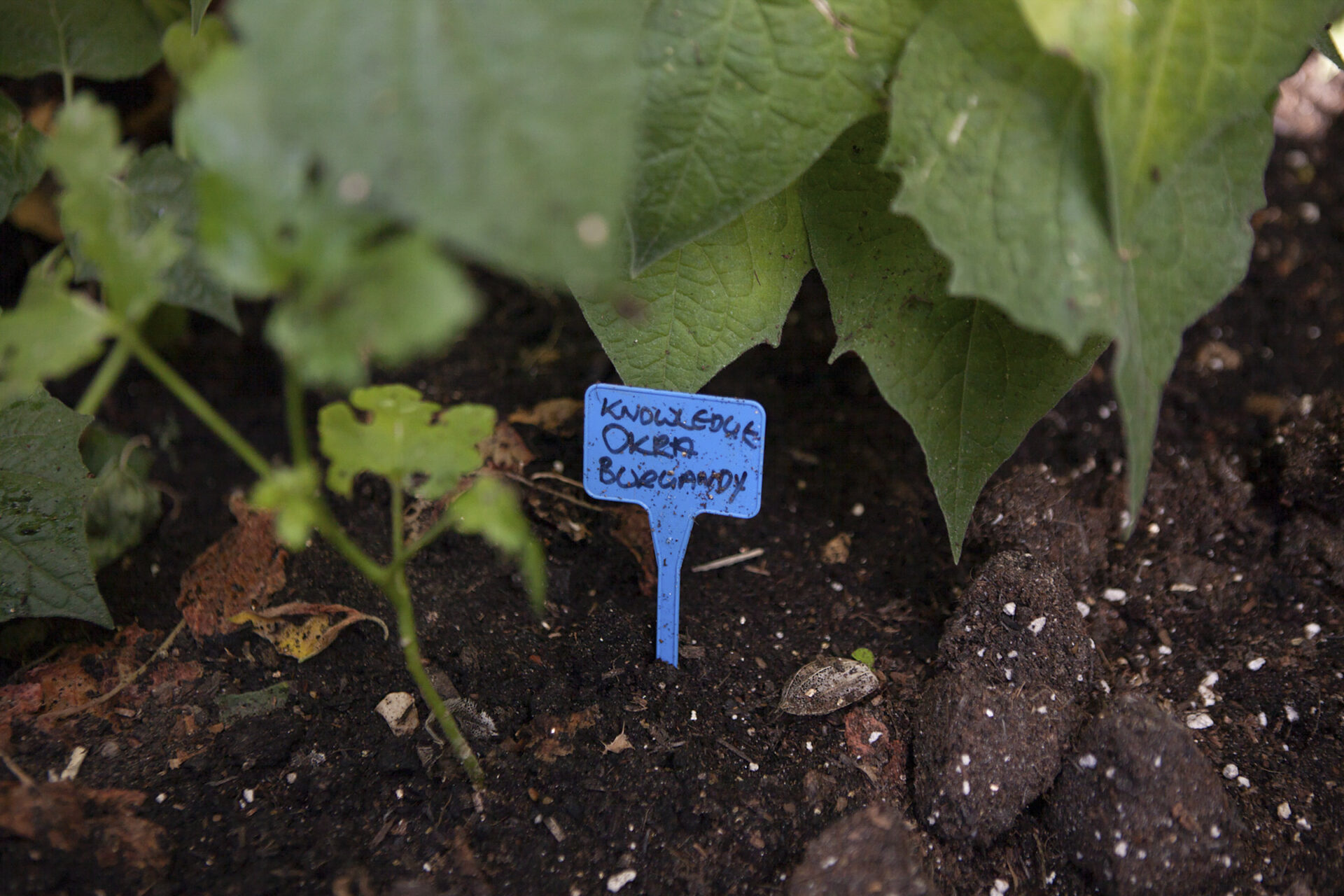
“What’s been really beautiful to watch is the younger generation of women – of women of colour, of black women, women of diaspora – who long for their roots and through the practices that Sandra, Paulette, Pam are passing down to these women, they are feeling more connected to their own homelands and to their ancestors.”
“Something that’s very fundamental to agroecology is diversity; making sure that we use diversity in the cropping systems. Diversity in terms of people is also incredibly important; bringing people from all different communities into contact with nature in ways that they can grow their own food.”
Jyoti Fernandez, The Landworkers’ Alliance
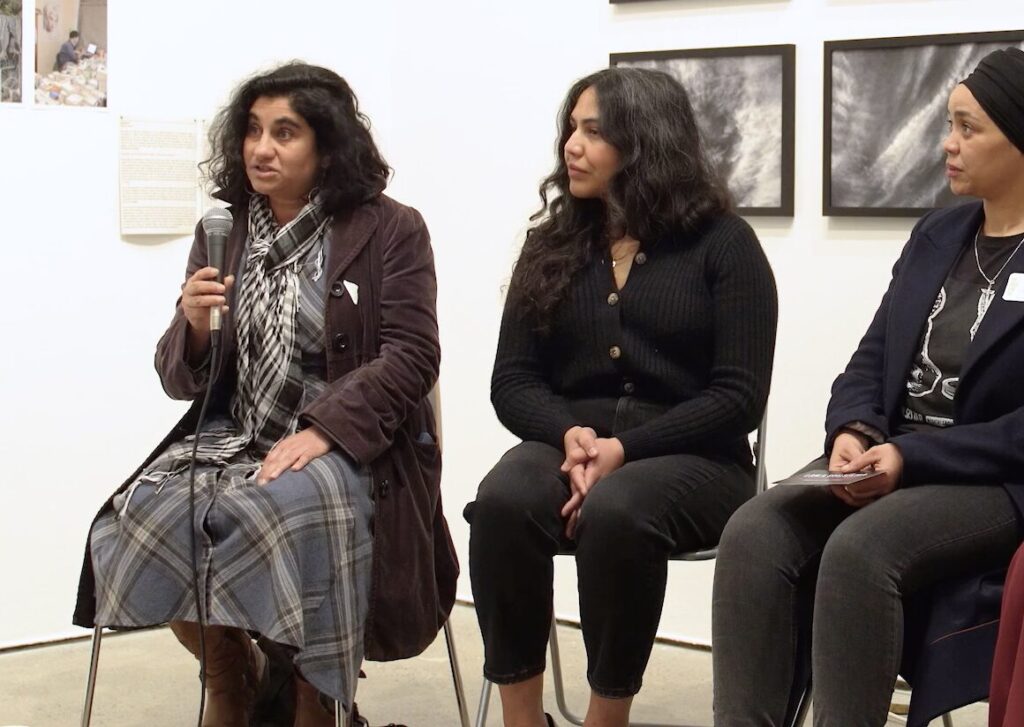
By rooting BPOC people in the land, these initiatives are growing grassroots solutions for racial equality, land reparations, and food sovereignty. Using an ancestrally informed, holistic approach, these women are cultivating communities alongside their crops.
“The elder generation needs to have an opportunity to pass on their knowledge when it comes to food.”
– Zena Edwards, poet
Women across North London are growing skills in land care, food preparation, and enterprise through community farming.
To perfectly frame these regenerative conversations, Hot Poet, Zena Edwards, shared her Poem, Tincture.
And in a community garden in North London
sumptuous, fecund soil sends a charge of good energy through the soles
of a brown-skinned barefoot baby, learning that dirt is not just dirt.
It was beautiful to hear from the incredible women laying the roots for a future of community farming in London. Listen to the full panel discussion and hear Zena’s full poem recital by watching the video above.
We are working closely with The Landworkers’ Alliance to help gather more support for a socially and environmentally just food system.
Find out more about The Landworkers’ Alliance, hear from our contributors, and get involved with community growing by joining us at one of our upcoming Food Justice events.


